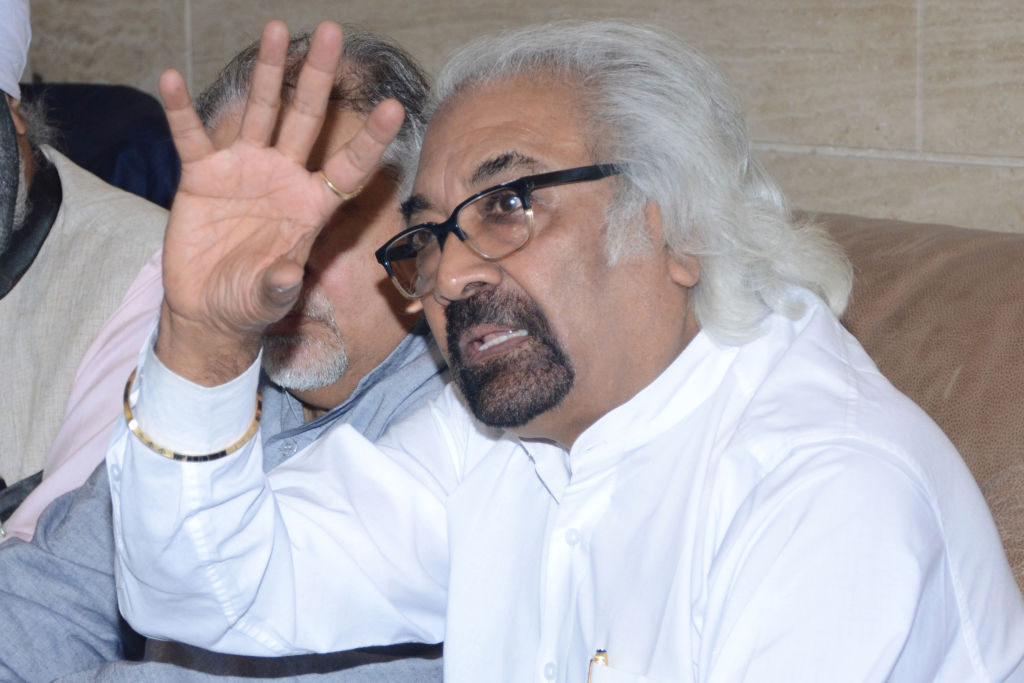- Monday, March 31, 2025
Pitroda’s remarks saw PM Modi launching a scathing attack on the opposition Congress, saying it would not spare people even after death by imposing an inheritance tax.

By: indiaweekly.biz Staff
SAM Pitroda, chairman of Indian Overseas Congress, has triggered a massive political controversy in India by remarking on the opposition Indian National Congress ‘wealth redistribution’ promise in its manifesto for the ongoing general elections.
The 81-year-old cited the inheritance tax, as it exists in some states of the United States, as an “interesting idea”. Such tax is imposed on the money or property one inherits from a deceased person’s estate.
The controversy erupted at a time when the Congress found itself locking horns with the ruling Bharatiya Janata Party (BJP) over prime minister Narendra Modi accusing it of robbing people’s savings, and even the ‘mangalsutra’ of the married Hindu women. As the Congress retaliated against Modi’s words with its senior leader Priyanka Gandhi Vadra saying her mother and grandmother had sacrificed mangalsutras and jewelleries for the country, Pitroda’s remarks gave the BJP new ammunition and Modi hit back at the opposition party saying it would not spare people even after death by imposing an inheritance tax.
While Pitroda defended his remarks saying they were being misinterpreted by the media loyal to Modi and the Congress distancing itself from the veteran’s statements saying they did not reflect its stance, there was no stopping in the BJP’s all-out attack against Pitroda.
Read: In Bengaluru, Priyanka Gandhi Vadra lambasts Modi over ‘mangalsutra’ remarks
Amid the ruckus, we try to understand what the inheritance tax in the US means.
In the United States, as mentioned above, an inheritance tax is a state tax which is imposed on the money or property one inherits from a deceased person’s estate.
In contrast to the country’s federal estate tax, which is settled by the estate, the inheritance tax is the responsibility of the beneficiary. Presently, the US federal government does not levy such a tax which is enforced by only six states — Iowa, Maryland, Kentucky, Nebraska, New Jersey and Pennsylvania. Additionally, numerous beneficiaries are exempt from this tax, even if they live in one of these states.
Read: Why Modi & BJP shifted to hard poll campaign tone after 1st phase? ‘Back to the basics’
The rates of inheritance tax exhibit significant diversity, spanning from less than one per cent to as high as 20 per cent of the total value of the inherited assets and cash.
Of the six states, Iowa recently passed a legislation to gradually eliminate its inheritance tax. It outlines a phase-out plan until the tax is completely eliminated for deaths happening on or after January 1 next year.
Once the deceased individual has distributed the assets among the beneficiaries, the inheritance tax comes into play. This tax is calculated individually for each beneficiary, and it becomes their obligation to settle the tax amount.
Consider a scenario where a state enforces a five per cent tax on inheritances surpassing $2 million. If one’s friend leaves with $5 million in his/her will, you would only incur tax on the portion surpassing $2 million, which is $3 million. Consequently, you would owe $150,000 in taxes. It is imperative to disclose this on an inheritance tax form as mandated by the concerned state.
This is where the law comes into play. While the rules of inheritance tax vary from state to state, resulting in varying rates of tax, there is another parameter — the closeness of the beneficiary with the deceased.
If the beneficiary is a close relative of the deceased, he/she might be exempt from paying the tax.
Inheritance tax is typically levied on inheritances worth more than a certain threshold. The tax rate may be a fixed percentage or it may escalate in tiers depending on the value of the inheritance.